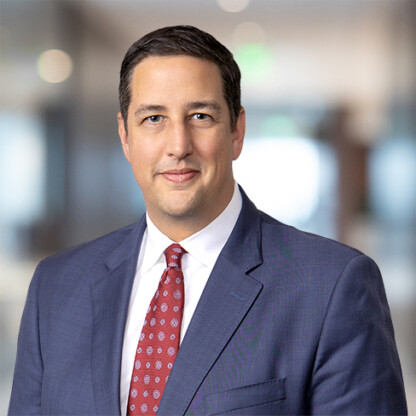Welcome to the newest edition of Foley’s MarketTrends newsletter. In this issue, we focus on key legal issues facing the Automotive and Manufacturing industries in 2020.
Legal Safeguards in Joint Development Relationships
Given the value of developing new technologies and the capital requirements to fund them, it is likely that 2020 will bring an increasing number of partnerships and joint ventures—in addition to outright mergers or acquisitions. However, just like M&A, these alternatives offer benefits and challenges that need careful consideration if the arrangement is to be successful.1
Some of the primary legal components to keep in mind:
- Personnel Management. Identify the employees critical to the success of Automthe combination, and have a communications, salary and benefits plan in place to ensure those people will remain in place during and after the transition. NOTE: It is vital to include a non-compete and non-solicit provision in a joint venture or joint development agreement to prevent any “poaching” from the parties to the venture or joint development agency (JDA).
- Pertinent Information Only. To reduce the risk of confidential (and likely irrelevant) information being shared during joint development discussions and/or implementation, limit the number of participants, educate employees, tailor the exchange of information, and develop a method to track disclosures.
- Key Provisions. Discuss how the proposed joint venture expects to address top concerns: quantity (the volume needed for an acceptable return on investment), duration (any expiration of terms, including early termination), warranties (responsibility for testing/validation/integration of software/hardware), indemnification (mutual vs one-sided), intellectual property, and limits on damages/remedies (repair/replace, product failure, etc.).
- Intellectual Property Protection. Establish clear standards for IP ownership, including how all parties will collaborate during the R&D process and how proprietary information will be kept confidential. Understand who is responsible for pursuing and maintaining patent protection, how to negotiate a change request regarding that responsibility, who will handle enforcement and licensing of the patents, how cost/recovery is to be shared, etc. Be sure to outline a process for any new IP that arises from the relationship, such as how to differentiate between improvements to existing IP and entirely new IP, how to handle development costs for new IP, and ownership vs licensure of such IP.2
Keep in mind that there are different types of contracts for each type of partnership—one size does NOT fit all. Provisions will vary depending on a variety of factors, including who has the most leverage and what each party brings to the table. Remember: contracts should pave the way for a successful business relationship; always consult your lawyer before finalizing any agreement.
Navigating Tariffs and Trade Wars
Tariffs are an increasingly important part of the supply chain landscape for manufacturing companies, including automotive suppliers. One way to reduce tariff risk is to apply for exclusions for the product your company wants to import. Currently, only 1-2% of such applications are being granted. To properly classify your import, it is crucial to know your product, its components, the sources of each component, and the process and location of production.
Another potential strategy is to ‘substantially transform’ your product by changing its country of origin to a more tariff-favorable destination. If possible, businesses may then be able to change its sources of supply to those in jurisdictions not subject to tariffs.
What can businesses do if they do not qualify for exclusions and cannot avoid regulation? Everything must be done in conjunction with current contracts, so looking at what these contracts allow is important. If you have a supply chain dispute, how will issues relating to tariffs play out in litigation? Specifically, courts have determined that increased tariff costs are not a force majeure event because tariffs do not make contractual performance impossible—just more expensive. Can being subject to tariffs be claimed as commercial impracticability under section 2-615(a) of the Uniform Commercial Code? The answer is likely that, in today’s political climate, potential tariffs are very much contemplated by the parties; thus, commercial impracticability is increasingly difficult to prove. It is important to note that both force majeure and the doctrine of commercial impracticability serve only to excuse performance—not facilitate a price increase negotiation.3
To summarize, here are some Supply Chain best practices for managing tariff risk:
- Businesses should review key contracts and terms and conditions to determine whether they contain avenues for renegotiating the price term, in the event tariffs are imposed;
- In dealing with suppliers and/or customers, businesses should review contracts for potential leverage points;
- Consider assigning tariff risk in the contract itself, to address future situations as they arise.
Industry at a Crossroads
Foley and Huron Consulting Group hosted a “2020 Automotive Update: State of the Market, Cost Recovery, and Market Disruption Opportunities” program on Tuesday, February 4th featuring keynote speaker Michael Robinet, Executive Director, IHS Markit Automotive Advisory. Michael reported on the current and projected state of the automotive industry as it faces some of the greatest challenges of our time. Whether driven by autonomous and electric-powered vehicles, slowing demand, or other external forces, the industry is expected to undergo change which will affect suppliers in 2020. Foley and Huron discussed how these changes would impact warranty claims and cost recovery, as well as the commercial and investment opportunities presented by a distressed business environment.
Foley Resources
For an in-depth analysis of The Top Legal Issues Facing the Automotive Industry in 2020, Foley’s Automotive Industry Team has prepared a comprehensive report examining what the legal landscape is likely to look like in 2020 and beyond.
We invite you to subscribe to Foley’s Dashboard Insights and Manufacturing Industry Advisor blog, which examines the latest news, developments, and trends in the industry.
1 2020 Manufacturing Industry Outlook, Deloitte, 2019
2 Legal Safeguards (and Potential Pitfalls) in Joint Development Relationships, Foley & Lardner – OESA Program May 2019
3 Foley & Lardner LLP and Association of Corporate Counsel Program, November 2019


